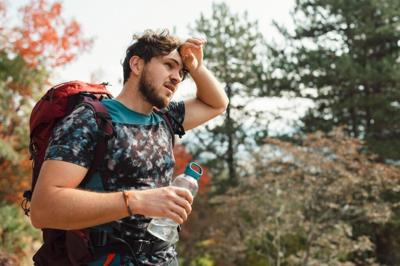When a hiker in Colorado starts to experience nausea, shortness of breath, and dizziness, they're likely to blame a condition called altitude sickness – typically triggered by entering high elevation terrain and amplified by dehydration, exhaustion, and overexertion. That being said, there's another condition that can be mistaken for altitude sickness that's called hyponatremia and when this condition is treated in the way one might address symptoms of altitude sickness, it can actually worsen the effects.
After responding to a July 21 report of a hiker suffering with altitude sickness at about 13,340 feet of elevation on Colorado's Mount Yale, Chaffee County Search and Rescue North shared a helpful tip that's often overlooked – don't drink lots of water while skipping the salt.
While too much salt on a hike can result in dehydration, too little salt can result in something called hyponatremia – low blood sodium. The symptoms of this less-discussed condition are similar to those of altitude sickness, resulting in confusion, stumbling, and even seizures.
In the case of the Yale hiker, it was reported that they had been drinking a lot of water, which prompted the search and rescue team to recommend that they immediately eat something salty or drink something with electrolytes. By drinking only water and a lot of it, the hiker's body was likely flushing sodium without replacing it, possibly resulting in hyponatremia that can have a tendency to get misdiagnosed as altitude sickness.
Granted, without running actual tests, it's impossible to determine which condition the rescue subject was actually suffering from, but the example stands – don't get too much salt while hiking, but don't avoid it. Maintaining a balanced level of blood sodium is key and sometimes that can mean consuming more than just water.
In an article from the Denver Post, Dr. Benjamin Honigman shares a few tips related to preventing hyponatremia. He says that if symptoms associated with either that condition or altitude sickness are felt, one should moderately – moderately being the key word – increase liquid intake, preferably by consuming something with electrolytes. A salty snack in addition to water can also be helpful. He also states that if someone seems dehydrated, but their mouth isn't parched and dry, it's probably not dehydration that's resulting in their discomfort. If the person isn't actually experiencing dehydration, more water could actually make the problem worse by flushing out more salt.
It's all about maintaining a balance while on the trail. Learning more about your own body's tendencies and limits over time is crucial. Always bring enough water on a hike, but don't skip the electrolyte drinks and salty snacks that will help you replenish valuable sodium your body continues to flush out during strenuous exercise.
STAY INFORMED: Sign-up for the daily OutThere Colorado newsletter here








(0) comments
Welcome to the discussion.
Log In
Keep it Clean. Please avoid obscene, vulgar, lewd, racist or sexually-oriented language.
PLEASE TURN OFF YOUR CAPS LOCK.
Don't Threaten. Threats of harming another person will not be tolerated.
Be Truthful. Don't knowingly lie about anyone or anything.
Be Nice. No racism, sexism or any sort of -ism that is degrading to another person.
Be Proactive. Use the 'Report' link on each comment to let us know of abusive posts.
Share with Us. We'd love to hear eyewitness accounts, the history behind an article.